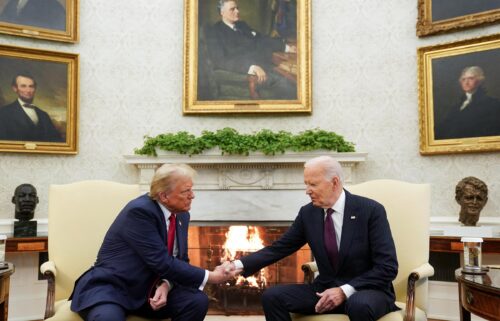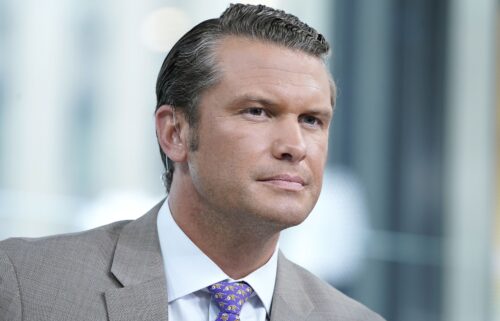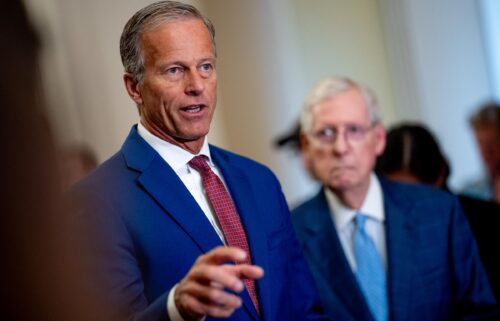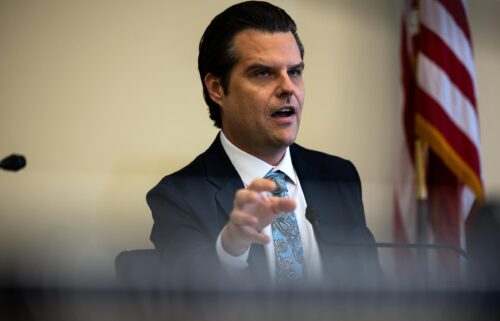Four takeaways from the last NYC mayoral debate before early voting begins this weekend
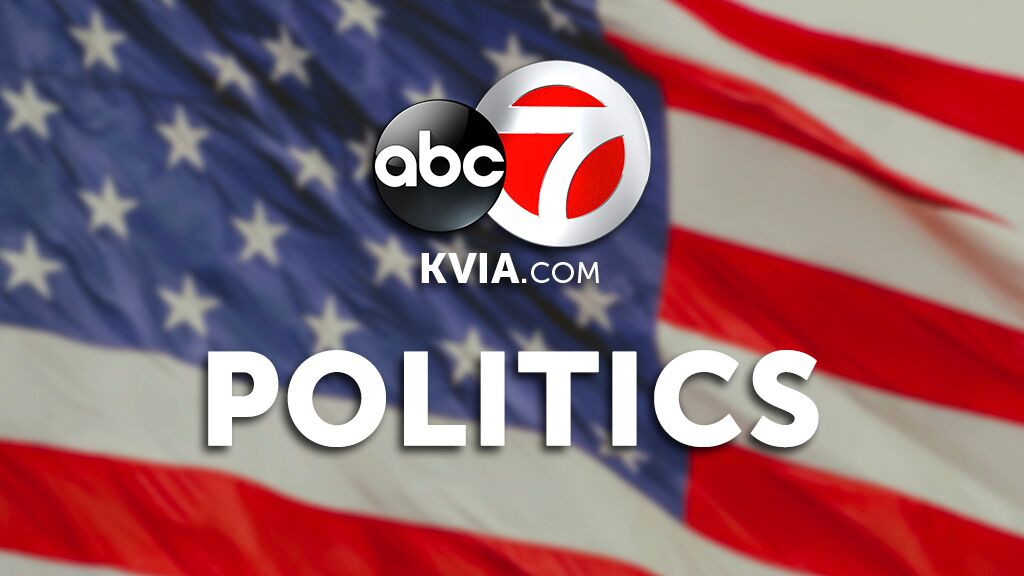
In their final debate before New Yorkers begin early voting on Saturday, five of the leading candidates in the Democratic mayoral primary on Thursday night delivered closing messages to voters and last-ditch attacks on each other.
After two previous gatherings that included eight contenders, the smaller stage made for more tense exchanges between rivals who have spent months campaigning for the chance to replace the departing, term-limited Mayor Bill de Blasio. That familiarity bred rounds of contemptuous debate over everything from police reform to the candidates’ connection to the city — literally so in the case of Brooklyn Borough President Eric Adams, who has been accused of lying about where he lives.
Adams on Wednesday gave reporters a guided tour of his Brooklyn apartment, while denying suggestions that he spent more time at another residence he shares with his partner in New Jersey. On this night, the first question from the moderator gave each of his competitors a chance to weigh in — and they lapped it up.
The candidates were also given an opportunity to address an issue that has wrenched New York politics for nearly eight years: the relationship between de Blasio and Democratic Gov. Andrew Cuomo. Their endless backbiting, which continued apace even during the worst days of the Covid-19 pandemic, has New Yorkers hoping (fruitlessly, if history is any teacher) for a more constructive partnership between city and state leadership.
But the debate, like the two before it, ultimately returned to what has becoming the defining question of the primary campaign: public safety and whether the New York Police Department is equipped to restore it during a period of rising violent crime.
Here are four takeaways from the third Democratic mayoral debate, with one more to go next week ahead of the primary on June 22.
Crime and gun violence divides the field
There is no debate over the fact that violent crime is surging in New York. But on the question of what to do about it, the Democratic field is split.
Adams, who retired as a captain in the NYPD before entering politics, and Andrew Yang, the former 2020 presidential candidate, have pushed harder lines and advocated for stepped-up policing. But Adams has insisted that his experience on the force makes him uniquely qualified to turn his vision into reality.
Yang sought to undermine that argument on Thursday, describing it as simplistic and mocking Adams’ campaign message as thin.
“Eric’s campaign seems to go like this: you’re concerned about crime. I used to be a cop 20 years ago. I should be mayor,” Yang said.
Adams responded, as he has done in the past, by casting doubt on Yang’s bona fides.
“I don’t know where Andrew has been until a shooting happened down the block from his house,” Adams said, referencing a recent incident in Times Square. “No one can question my commitment around ending violence in this city. No one on this stage can tell you that they have put their life on the line to save New Yorkers.”
When the moderators asked whether the candidates would consider taking guns away from police officers in certain cases, the idea was dismissed out of hand by four of the five candidates.
Civil rights lawyer and former de Blasio counsel Maya Wiley, who has emerged as the new progressive establishment’s top choice, was less committal.
“The mayor’s job is safety,” Wiley said. “Safety is job one.”
But after being pressed by moderator Marcia Kramer — the same famed reporter who got then-candidate Bill Clinton to admit he smoked (but “didn’t inhale”) marijuana back in 1992 — Wiley eventually tapped out, saying she would not “make that decision in a debate.”
Eric Adams faces (more) questions about where he lives
Adams says he lives in Brooklyn, the borough that he leads. He even invited reporters into his apartment there, in the Bedford-Stuyvesant neighborhood, on Wednesday for a tour, open fridge and all, to push back on a report in Politico suggesting he might actually be spending more time in New Jersey, where he also owns a home.
The first question of the night offered his rivals a chance to go on the record: do they believe him?
“He spent months attacking me for not being a New Yorker,” Yang said, “meanwhile he was attacking me from New Jersey.”
Others were a bit more circumspect.
Wiley said that voters “want a mayor who is fully forthcoming,” while Kathryn Garcia, a former sanitation commissioner, who delivered her most assertive performance to date, called the story that blew up the issue “utterly confusing” and asked if “this is a ‘Where’s Waldo?’ moment.”
“The only time I go to New Jersey is by accident,” New York City Comptroller Scott Stringer deadpanned.
Adams again insisted that he resides in Brooklyn and dismissed the back-and-forth as “silly conversations” — but not before adding a dig at Yang.
“I don’t live in New Paltz,” he said, referring to Yang’s Ulster County home north of the city. “I live in Brooklyn.”
Yang tries to erase doubts about his commitment to the city
Yang’s time away from the city last year, which he spent at his home in the Hudson Valley with his wife and two young children, has often been used as a cudgel by his rivals, who have sought to cast him as a dilettante politician with a dubious understanding of city politics.
Asked who would foot the bill for his travels upstate, Yang made a pledge of sorts: “I don’t expect to leave the city a single day my first term,” he said — words that won’t soon be forgotten, should he win the office.
“New Yorkers are going to be sick of me,” Yang continued. “They’ll be like, Yang, go away.”
But Yang also sought to turn the issue back on Adams and his now famous Brooklyn dwelling.
“I’ve never seen that basement apartment,” Yang said, before adding that Wednesday’s open house for reporters “raised more questions than it answered.”
The candidates pledge to make peace, up to a point, with the governor
Feuds between New York City mayors and the New York governors, who control major parts of the city — like its subways — are nothing new. But the vitriol of the de Blasio and Cuomo era has been something to behold.
So when the moderators asked what the candidates would do to mend that relationship, or at least make it workable, they were all prepared with ideas.
Stringer criticized de Blasio, saying that, “Nobody in (the state capital of) Albany, when I’m mayor, will steal my lunch money.”
Adams said he would sideline his “ego” for the greater good, or as he put it, “Team New York.”
Wiley leaned into her progressive argument, suggesting that only a mayor with a unified city behind her could counter an aggressive state executive.
“What’s critical to getting along with the governor,” she said, “is making sure we are organizing the constituents that he serves along with the mayor of New York City.”
Yang touted his friendly relationship with Cuomo and argued that harmony could be achieved through mutual self-interest.
“The state needs the city,” Yang said. “The city needs the state.”
By that point, though, Stringer, who has spent decades in the politics of both New York City and Albany, had heard enough.
He dismissed Yang’s approach as “naïve” and called it “de Blasio 2.0” — which, despite the current mayor’s success in winning two terms, was anything but a compliment.

